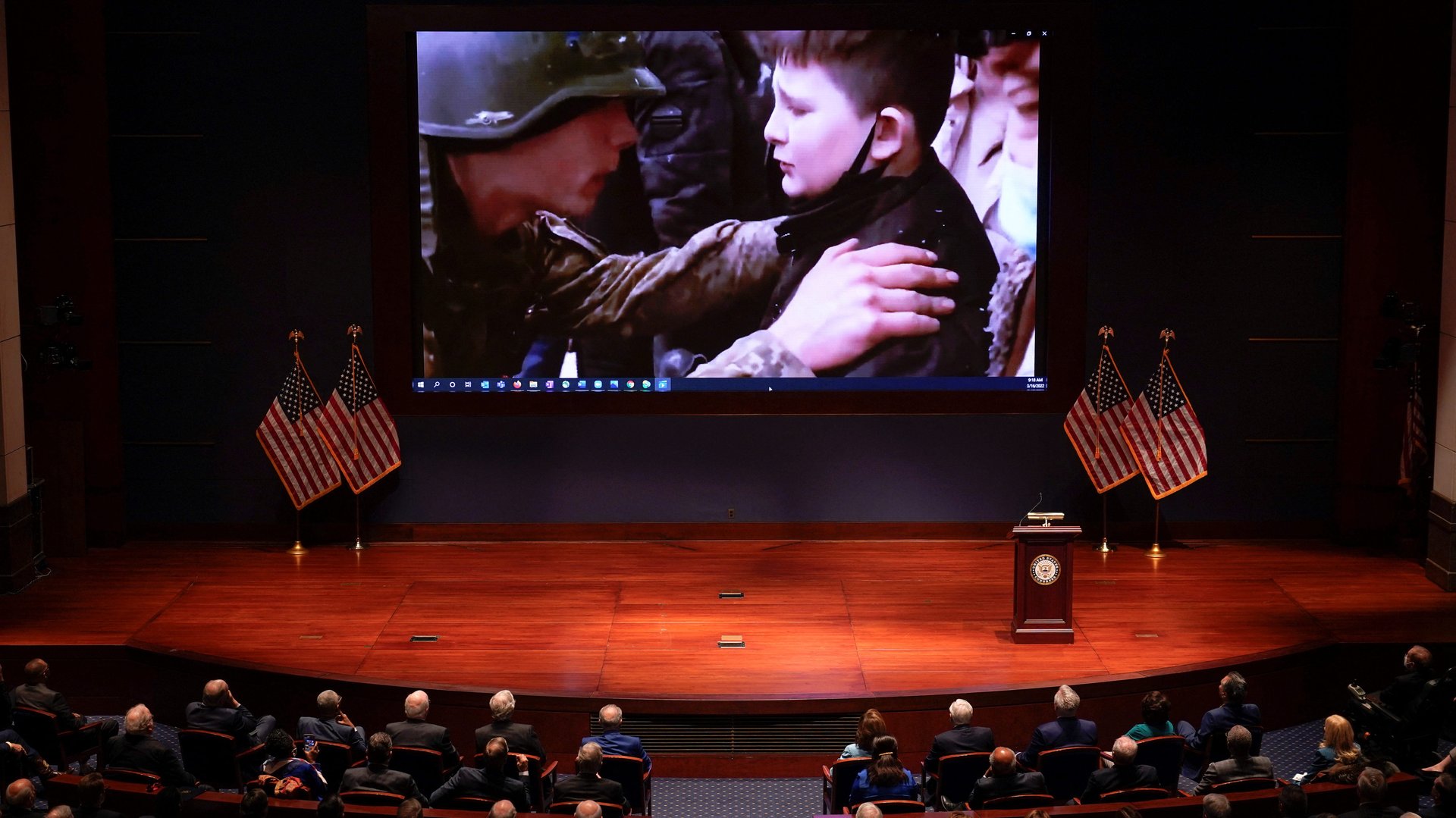Zelenskyy is appealing to Western lawmakers with rhetoric and imagery they understand
Ukrainian president Volodymyr Zelenskyy, aiming to drum up more international support for his country as it fights a war against Russia, has been tailoring his speeches with imagery and rhetoric to appeal to each nation on his virtual tour.


Ukrainian president Volodymyr Zelenskyy, aiming to drum up more international support for his country as it fights a war against Russia, has been tailoring his speeches with imagery and rhetoric to appeal to each nation on his virtual tour.
Addressing Germany’s parliament remotely on March 17, Zelenskyy referenced the Berlin Wall to describe how Russia is trying to divide Europe. Speaking before US Congress the day before, he likened the war to moments such as the Pearl Harbor and Sept. 11 attacks.
The appeals have been effective in some cases at convincing international leaders to pledge more support to Ukraine. But certain asks from Zelenskyy have gone unanswered.
Zelenskyy asks Germany to “tear down this wall”
The Ukrainian president accused Germany of prioritizing Russian business interests over European security, and described a new wall that Russia is erecting by sowing division in Europe. He addressed German chancellor Olaf Scholz directly by alluding to the fall of the Berlin Wall in 1987: “Dear Mr. Scholz, tear down this wall.”
Just as Germany was once divided between the Soviet-controlled communist East and the free West, Ukraine is now caught in a conflict that has created a “free and unfree” Europe, Zelenskyy said. The Jewish president also alluded to the Holocaust to make the point that promises by European leaders aren’t being kept.
Other speeches allude to MLK, Churchill
Zelenskyy’s speech to the US Congress also struck hopeful notes, with references to Mount Rushmore and Martin Luther King Jr.
Addressing the UK parliament the week before, Zelenskyy drew from former UK prime minister Winston Churchill’s June 1940 speech vowing to “fight on” after Allied forces were evacuated from Dunkirk. He also posed the famous Shakespearean question of “to be or not to be,” to emphasize the importance of action from lawmakers.
Appeals only go so far
While Zelenskyy’s appeals have touched lawmakers and the public, their political impact has been mixed. The US said it would send $800 million in additional military assistance to Ukraine but stopped short of agreeing to the no-fly zone Zelenskyy requested.
And while the German government has already taken some actions to support Zelenskyy, such as pausing the Nord Stream 2 gas pipeline with Russia and reversing an export ban to send weapons to Ukraine, Germany gets most of its gas from Russia and has thus far refused to ban imports of it.